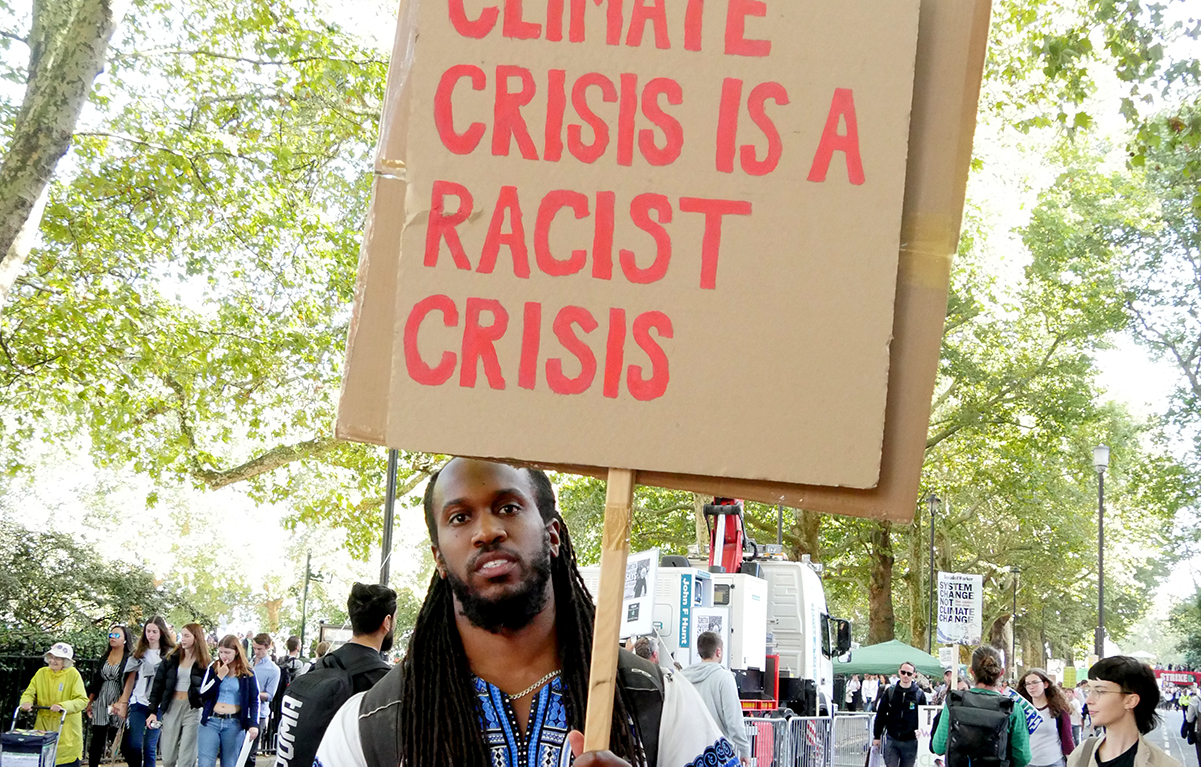A week of coordinated strike action began on Friday (20 September) to pressure governments across the world into addressing the worsening climate crisis.
Millions of people across the globe are estimated to have taken time away from work or school to join what many have predicted to be the biggest ever climate protest.
Global heating is inextricably linked to human rights, as has been highlighted by Amnesty International and United Nations special rapporteur Philip Alston among others.
It is having harmful impacts on many of our rights, such as to our right to life, health, food, water, housing, and livelihoods.
RightsInfo joined the central London crowds – which grew to an estimated 100,000 people – both in solidarity and to speak to protesters about why they are striking.
‘The Climate Crisis Is A Racist Crisis’
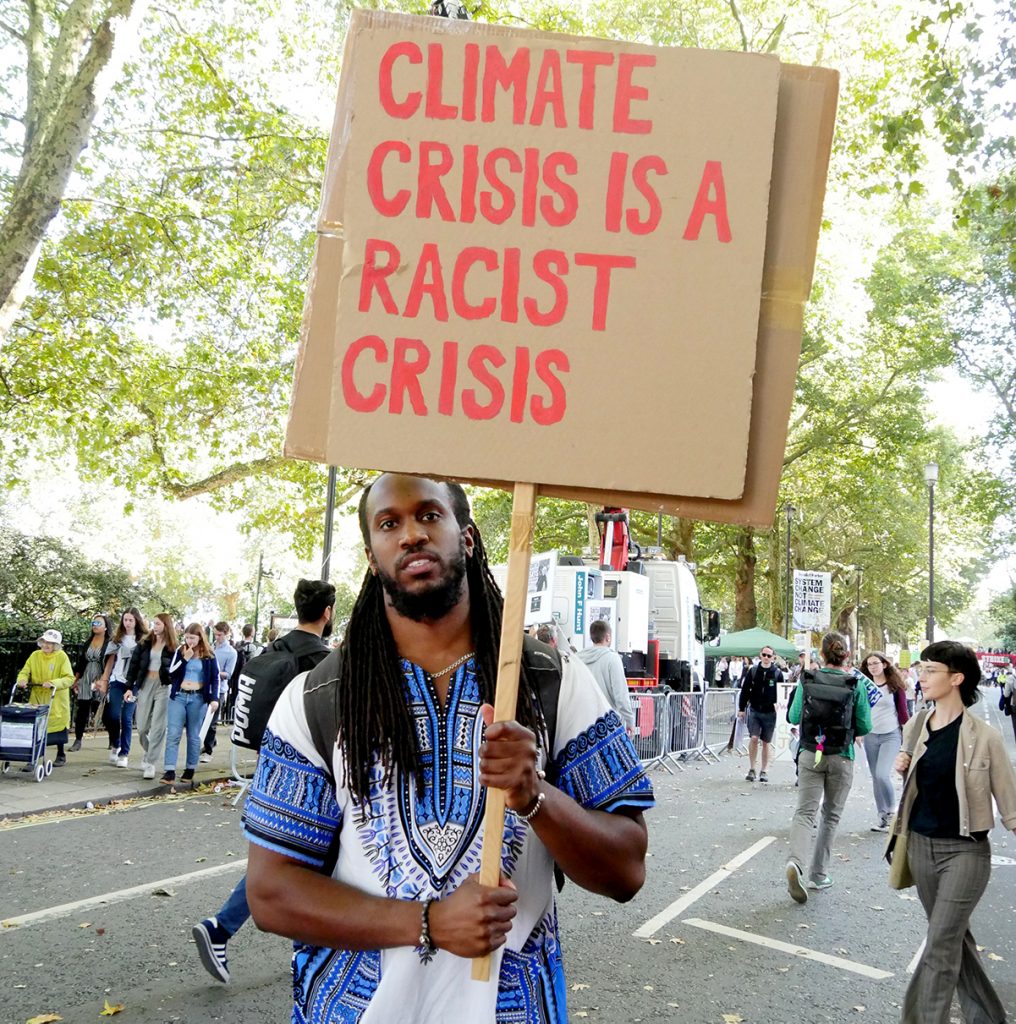
Ntale Eastmond, 29, took to the protest with a homemade sign bearing the slogan: “The climate crisis is a racist crisis.”
“The environment crisis is going to disproportionately affect the global south,” he explained.
“There is a disregard for the lives of black and brown people across the world,” he added. “[The crisis] will increase global inequality and local inequality and disadvantage black and brown people here in the UK.”
Ntale’s message echoes a report released by UN expert Philip Alston in June, which warns of an impending “climate apartheid” in which the wealthy in western nations are better able to cope with extreme weather events.
Alston argued that those who are better off will be able to pay to escape the heat and hunger caused by a climate crisis, while those in poverty are forced to confront the consequences and lose access to food, water, and housing.
‘Healthcare Is A Basic Human Right’
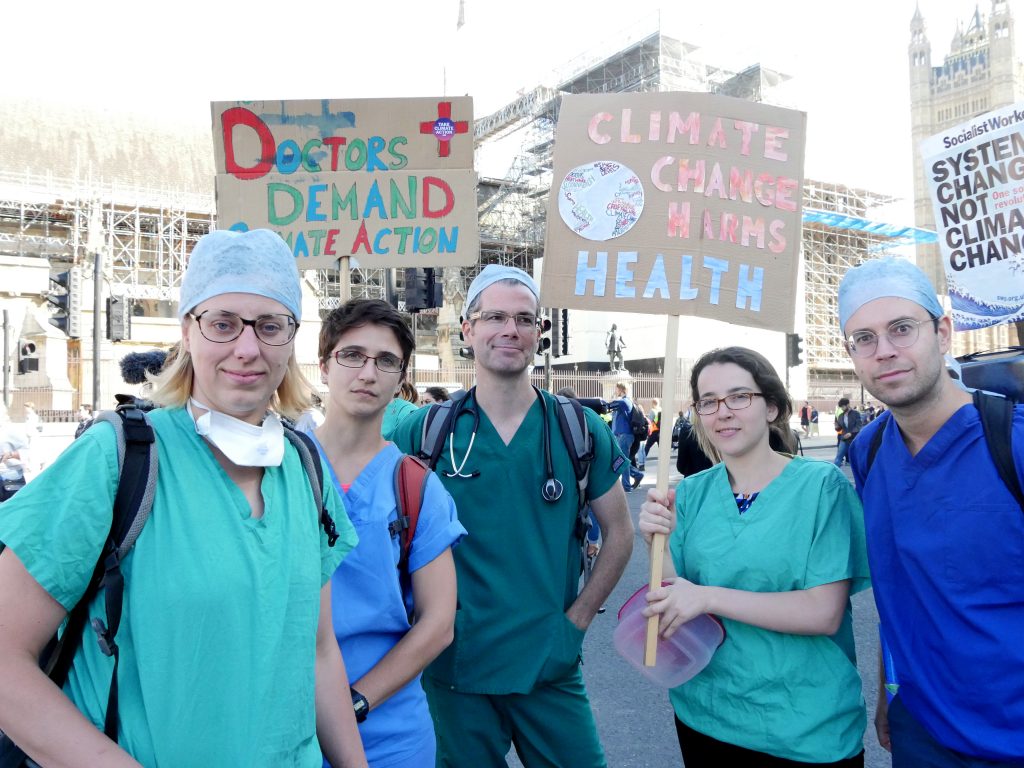
Among the crowd of demonstrators, a stone’s throw from the Houses of Parliament, was a group of doctors wearing green and blue surgery scrubs.
“I’ve worked a lot in acute medicine and A&E and we are already seeing more hospital admissions due to climate change related problems like heat and air pollution and I think that is going to increase in the future,” doctor Maria Van Hove told RightsInfo. “It’s something I’m quite worried about in terms of patient care.”
She said the people who will be most affected will be those from ethnic minority groups, and those living in deprived areas with a lot of heat.
Dr Van Howe added: “Healthcare is a basic human right in my opinion.”
Pupil Power
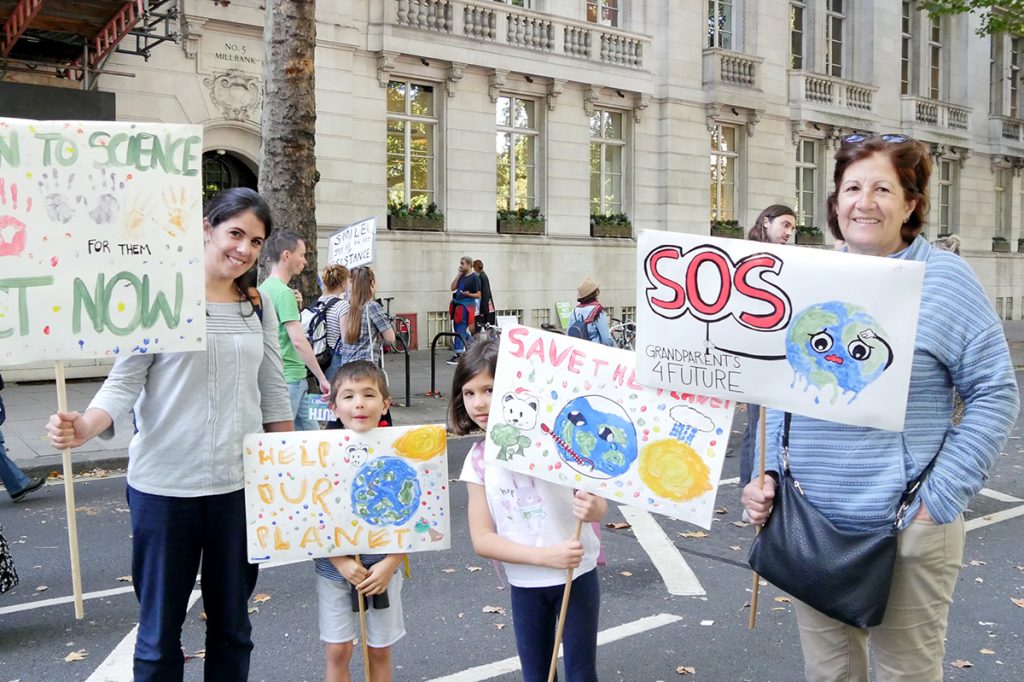
Journeying into Westminster from the south London borough of Lewisham were seven-year-old Ines, her brother Luis, five, and their mum Beatrice and grandma Charo.
While Luis and Ines were a little too shy to speak to RightsInfo, Beatrice said: “My kids are very aware that the planet is in danger and we need to do something to sort it out.
“We should do something now, there is not much time left. That is why we joined the strike today.”
Their self-made signs were emblazoned with the words: “listen to science – act now”, “help our planet”, “save our planet”, and “SOS Grandparents 4 Future”.
Schoolchildren have made up a substantial proportion of the numbers at today’s strike. Many are inspired by 16-year-old environmentalist Greta Thunberg, who in August last year started to take Fridays off from school to protest climate change outside Sweden’s parliament.
Last week, Amnesty International issued a letter to 25,000 schools around the UK, urging them not to take punitive action against pupils taking part in the strike. Beatrice said that her children’s school was supportive of the strike action.
‘Indigenous People In Danger’
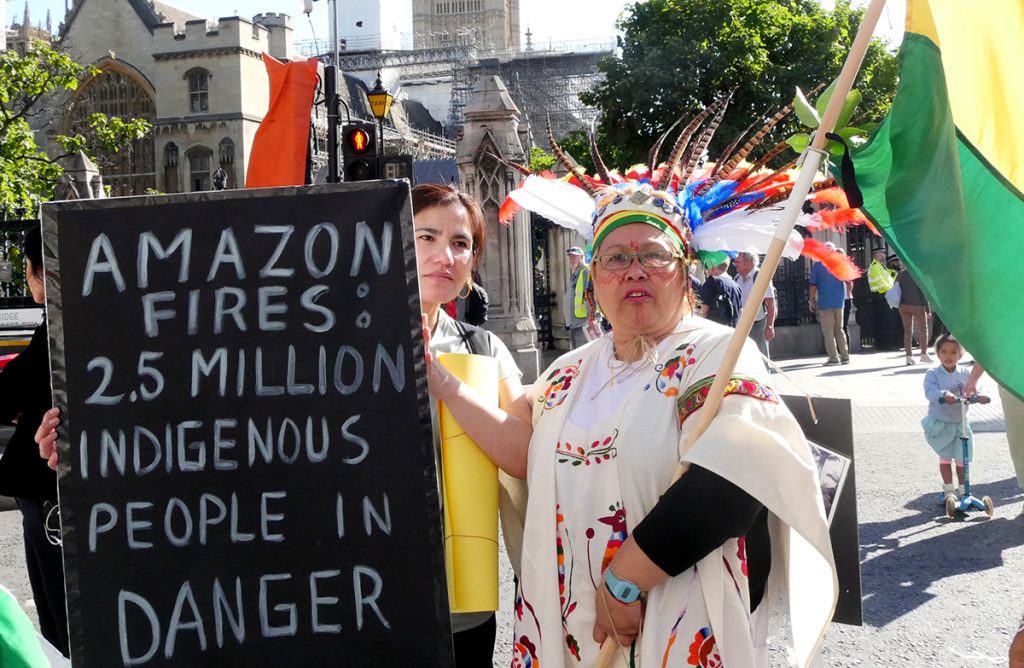
Gathered in a group outside Westminster Tube station were a handful of demonstrators from Bolivia, calling for action to put out fires ravaging areas of Amazon rainforest in their homeland.
Among them was Telma Raoz, who carried a sign saying: “Amazon fires: 2.5million indigenous people in danger”. While the source of this statistic is unclear, and the indigenous population within the Amazon difficult to quantify, human rights abuses against indigenous communities are well-documented.
She told RightsInfo that she laments the lack of media attention to problems in Bolivia, with the world’s focus only on Brazil. “It has been burning for more than two months,” she said. “The world does not talk about it.”
She urged governments including that of the UK to put pressure on Bolivian president Evo Morales to declare a “national disaster”, so that the country can seek external support to handle the blaze.
“The fact is that we don’t have the technology and the means to stop the fires. Children cannot go to school. They are getting ill.”

